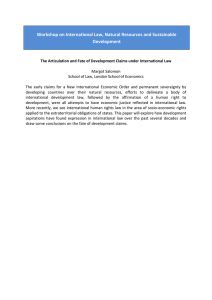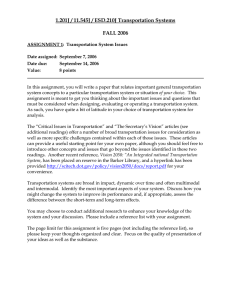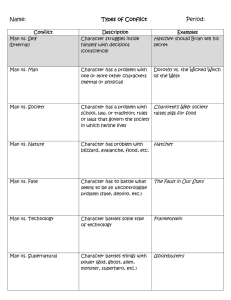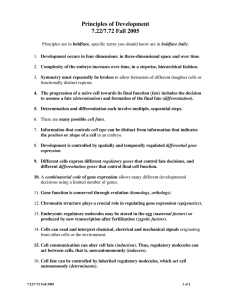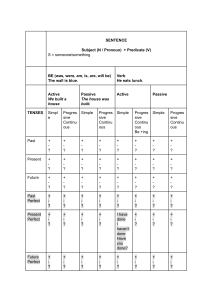Massachusetts Institute of Technology Department of Biology
advertisement
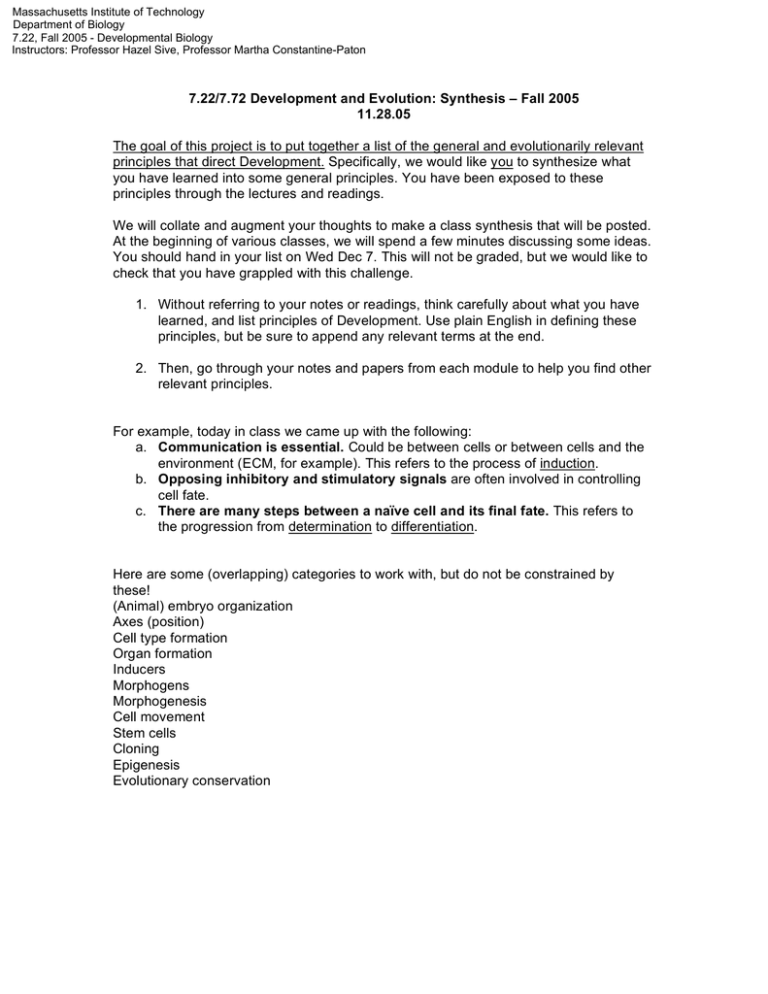
Massachusetts Institute of Technology Department of Biology 7.22, Fall 2005 - Developmental Biology Instructors: Professor Hazel Sive, Professor Martha Constantine-Paton 7.22/7.72 Development and Evolution: Synthesis – Fall 2005 11.28.05 The goal of this project is to put together a list of the general and evolutionarily relevant principles that direct Development. Specifically, we would like you to synthesize what you have learned into some general principles. You have been exposed to these principles through the lectures and readings. We will collate and augment your thoughts to make a class synthesis that will be posted. At the beginning of various classes, we will spend a few minutes discussing some ideas. You should hand in your list on Wed Dec 7. This will not be graded, but we would like to check that you have grappled with this challenge. 1. Without referring to your notes or readings, think carefully about what you have learned, and list principles of Development. Use plain English in defining these principles, but be sure to append any relevant terms at the end. 2. Then, go through your notes and papers from each module to help you find other relevant principles. For example, today in class we came up with the following: a. Communication is essential. Could be between cells or between cells and the environment (ECM, for example). This refers to the process of induction. b. Opposing inhibitory and stimulatory signals are often involved in controlling cell fate. c. There are many steps between a naïve cell and its final fate. This refers to the progression from determination to differentiation. Here are some (overlapping) categories to work with, but do not be constrained by these! (Animal) embryo organization Axes (position) Cell type formation Organ formation Inducers Morphogens Morphogenesis Cell movement Stem cells Cloning Epigenesis Evolutionary conservation
